I am really pleased to announce the publication of our paper ‘Don’t be a waster! Student perceptions of recycling strategies at an English University’s halls of residence’ in the International Journal of Sustainability in Higher Education. Joseph Dixon, a former sociology student at Bournemouth University, worked alongside myself to publish research that he undertook concerning recycling behaviours among students. The paper can be accessed at Emerald EarlyCite https://www.emerald.com/insight/content/doi/10.1108/IJSHE-10-2020-0383/full/html.
Category / Sociology & Social Policy
BU conference presentation on migration and COVID-19 in Nepal
 Yesterday Dr. Pramod Regmi, Dr. Shovita Dhakal Adhikari, Dr. Nirmal Aryal and Prof. Edwin van Teijlingen, all based in the Faculty of Health & Social Sciences, presented at the tenth Annual Kathmandu Conference on Nepal & the Himalaya. Their paper ‘Moral panic and othering practices during Nepal’s COVID-19 Pandemic (A study with returnee migrants and Muslims in Nepal)’ was co-authored by Dr. Sharada Prasad Wasti from the University of Huddersfield and Shreeman Sharma (Department of Conflict, Peace & Development
Yesterday Dr. Pramod Regmi, Dr. Shovita Dhakal Adhikari, Dr. Nirmal Aryal and Prof. Edwin van Teijlingen, all based in the Faculty of Health & Social Sciences, presented at the tenth Annual Kathmandu Conference on Nepal & the Himalaya. Their paper ‘Moral panic and othering practices during Nepal’s COVID-19 Pandemic (A study with returnee migrants and Muslims in Nepal)’ was co-authored by Dr. Sharada Prasad Wasti from the University of Huddersfield and Shreeman Sharma (Department of Conflict, Peace & Development
Studies, Tribhuvan University, Nepal). The presentation was partly based on research funded by the British Academy.
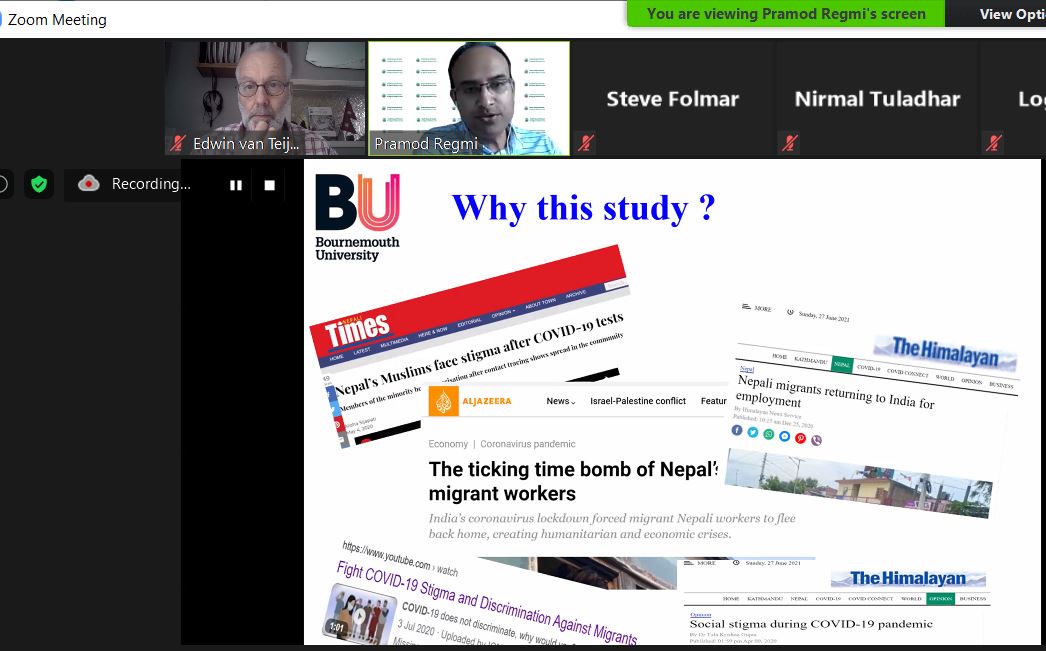
Care at home in the time of covid.
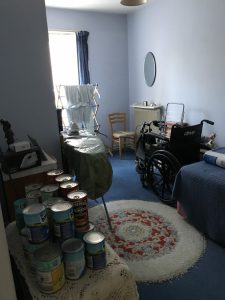 Covid-19 lockdowns and social distancing have socially and spatially reorganised the reproductive labour entailed in supporting, maintaining and sustaining people in everyday life. The closure of schools, day centres, shops and non-essential services, alongside prohibitions on household mixing, have meant that caring work has been much more spatially concentrated and contained within households than in normal times. For reasons of health, age or physical frailty, a large number of adults have come to depend more than usual on others to support and care for them at home.
Covid-19 lockdowns and social distancing have socially and spatially reorganised the reproductive labour entailed in supporting, maintaining and sustaining people in everyday life. The closure of schools, day centres, shops and non-essential services, alongside prohibitions on household mixing, have meant that caring work has been much more spatially concentrated and contained within households than in normal times. For reasons of health, age or physical frailty, a large number of adults have come to depend more than usual on others to support and care for them at home.
Over the past year, I’ve been carrying out a British Academy-funded study exploring the experiences of people who provide home-based care and support. I’ve examined three areas, or what I call infrastructures of provision; family carers, home (domiciliary) care services and voluntary and community sector initiatives which support people at home. Focusing on Bournemouth Christchurch and Poole (BCP) and Dorset local authority areas, I’ve been examining the challenges these infrastructures faced during the pandemic. I’ve carried out semi-structured interviews with carers, volunteers and volunteer coordinators, as well as home (domiciliary) care workers and their managers, to learn about their experiences.
Social care, the voluntary and community sector and the family are usually studied separately. Why does this study bring them together?
Firstly, despite differences between them, there are some basic similarities between what volunteers, care workers and carers do in looking after people in their own homes during the pandemic. All have been directly engaged in the vitally important work of sustaining people through the crisis, keeping them safe at home by ensuring some of their essential needs (for food, medicines) were met. Many were also providing company and comfort for people isolated at home. They did this in different ways depending on their role – in person, with PPE, over the phone, or at a safe two meters distance from the front door.
Another feature shared across the three infrastructures is the low levels of public investment each receives. The social care system has always been highly residual in the UK (Lewis 2001), but is becoming even more so. In recent years, the numbers of people entitled to public support with social care costs has been in overall decline, particularly amongst adults of retirement age (Bottery 2020). Home care workers in social care are also amongst the lowest paid workers in the UK, at a median hourly rate of £8.50 (Skills for care 2021).
Similarly, state financial support for carers is one of the lowest paid amongst all state benefits, at £67.25 per week, and many carers are in financial hardship (Carers UK 2021). The voluntary and community sector has been significantly impacted by government austerity measures over the last decade, albeit unevenly (Kay 2020). Many voluntary organisations rely on support from local authorities, which have absorbed massive cuts to public finances.
Thus, despite its high social value and the fact that it has been indispensible to the welfare and wellbeing of large numbers of people during the pandemic, the work carried out by carers, care workers and volunteers receives shockingly meagre levels of public funding. That this contradiction is both unsustainable and deeply unjust has long been recognised by policy makers, campaigning groups, academics, trade unions and some politicians (see further Bear et al 2020, Dowling 2021, Wood and Skeggs 2020).
Taking a broader historical perspective, some feminist scholars argue that this contradiction is a systemic feature of capitalism. Capitalist accumulation depends on activities that recreate and sustain people, thereby enabling workers, consumers, markets, production and productivity to exist at all. But it also relies on offloading the costs of these activities (eg., onto families) such that they do not overly impede the creation and expansion of wealth, but instead appear to be separate and external to it (Ferguson 2020). Nonetheless, political demands that a greater share of this wealth be redistributed to enable people to better sustain themselves and each other can be and have been made, in different historical contexts, and with mixed successes. The outcomes of this core tension are not given, but are constantly being worked out in social and political life.
In the present moment in the UK, the pandemic has made starker than ever the contradiction between the vital importance of home care on the one hand, and its underinvestment and public neglect on the other. As large parts of the productive economy were shut down, a new appreciation of essential workers crystallized, and our collective dependence on their contribution was publicly ritualised in the weekly ‘clap for our carers’ event. Public support for greater care justice appears to be growing (Wood and Skeggs, 2020). This makes now a key moment to capture and compare the experiences of people who sustained others during the pandemic, and consider how these could inform the creation of a new, fairer care settlement in the UK.
References
Bear, L., James, D., Simpson, N., Alexander, E., Bhogal, J., Bowers, R., Cannell, F., Lohiya, A., Koch, I., Laws, M., Lenhard, J., Long, N., Pearson, A., Samanani, F., Vicol, D., Vieira, J., Watt, C., Wuerth, M., Whittle, C., Bărbulescu, T., 2020. The right to care. The social foundations of recovery from Covid-19 [online]. Covid and care research group: London school of economics. Available from: https://www.lse.ac.uk/anthropology/assets/documents/research/Covid-and-Care/ARighttoCare-CovidandCare-Final-2310.pdf (Accessed 13.7.2021)
Bottery, S., 2020. Social care services. Funding cuts are biting hard. The Kings Fund [online]. 9th January. Available from: https://www.kingsfund.org.uk/blog/2020/01/social-care-funding-cuts-are-biting-hard (Accessed 13.7.2021).
Carers UK, 2021. Fairer for carers – background information [online]. Carers UK. Available from: https://www.carersuk.org/news-and-campaigns/campaigns/fairer-for-carers-background (Accessed 13.7.2021).
Dowling, E., 2021. The care crisis. What caused it and how do we end it? London: Verso.
Ferguson, S., 2020. Women and work. Feminism, labour and social reproduction. London: Pluto Press
Kay, L., 2020. Ten years of cuts have ‘damaged health and widened regional inequality’ [online]. Third sector, 20th February 2020. Available from: https://www.thirdsector.co.uk/ten-years-cuts-have-damaged-health-widened-regional-inequality/policy-and-politics/article/1674970 (Accessed 13.7.2021).
Lewis, J., 2001. Older people and the health-social care boundary in the UK: Half a century of hidden policy conflict. Social policy & administration. 35 (4), 343-359.
Skills for Care, 2021. Pay in the adult social care sector [online]. Available from: https://www.skillsforcare.org.uk/adult-social-care-workforce-data/Workforce-intelligence/documents/Pay-in-ASC-sector-2020.pdf (Accessed 13.7.2021)
Wood, H and Skeggs, B., 2021. Clap for carers? From care gratitude to care justice. European journal of cultural studies, 23 (4), 641-647.
ICM Media & Midwifery presentation today
 Today Prof. Vanora Hundley, based in the Faculty of Health & Social Sciences, gave a well-received presentation on ‘Changing the narrative around childbirth: whose responsibility is it?’ at the 32nd ICM (International Confederation of Midwives) Virtual Triennial Congress. Prof. Hundley presented online a BU collaboration published in the journal Evidence-based Midwifery [1]. This presentation is part of a larger body of interdisciplinary work between media and heatlh scholars at Bournemouth University [see 2-6].
Today Prof. Vanora Hundley, based in the Faculty of Health & Social Sciences, gave a well-received presentation on ‘Changing the narrative around childbirth: whose responsibility is it?’ at the 32nd ICM (International Confederation of Midwives) Virtual Triennial Congress. Prof. Hundley presented online a BU collaboration published in the journal Evidence-based Midwifery [1]. This presentation is part of a larger body of interdisciplinary work between media and heatlh scholars at Bournemouth University [see 2-6].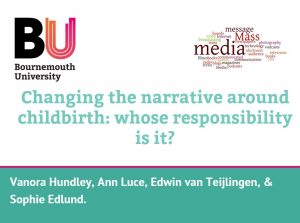
The finding that UK midwives fear the media resonates with experiences from many other countries and professional groups. There is a need to change media discourse in fictional and factual representations of childbirth, and midwives have a critical role to play in this, but to do this they need to equip themselves with the skills necessary to engage with the media. Guidelines on responsible media reporting could ensure that media producers portray pregnancy, midwifery
and maternity care as naturally as possible.
- Hundley, V., Luce, A., van Teijlingen, E., Edlund, S. (2019) Changing the narrative around childbirth: whose responsibility is it? Evidence-based Midwifery 17(2): 47-52.
- Luce, A., Hundley, V., van Teijlingen, E. (Eds.) (2017) Midwifery, Childbirth and the Media, London: Palgrave Macmillan [ISBN: 978-3-319-63512-5].
- Luce, A., Cash, M., Hundley, V., Cheyne, H., van Teijlingen, E., Angell, C. (2016) “Is it realistic?” the portrayal of pregnancy and childbirth in the media BMC Pregnancy & Childbirth16: 40 http://bmcpregnancychildbirth.biomedcentral.com/articles/10.1186/s12884-016-0827-x
- Angell, C. (2017) An Everyday Trauma: How the Media Portrays Infant Feeding, In: Luce, A. et al. (Eds.) Midwifery, Childbirth and the Media, London: Palgrave Macmillan pp: 45-59.
- Hundley, V., Duff, E., Dewberry, J., Luce, A., van Teijlingen, E. (2014) Fear in childbirth: are the media responsible? MIDIRS Midwifery Digest24(4): 444-447.
- Hundley, V., Luce, A., van Teijlingen, E. (2015) Do midwives need to be more media savvy? MIDIRS Midwifery Digest25(1):5-10.
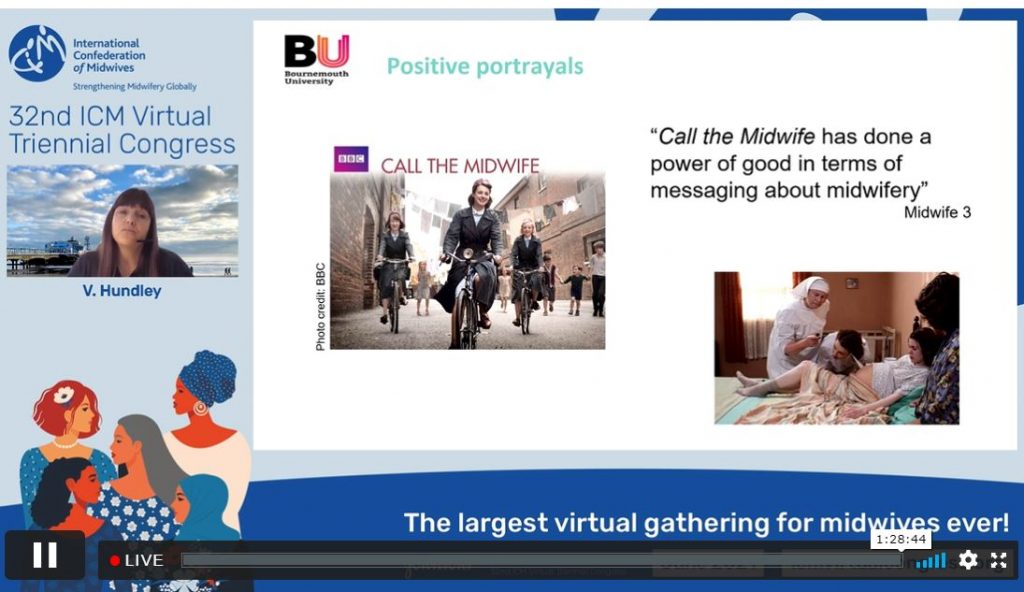
International Confederation of Midwives online conference started today
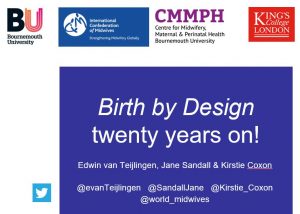 The ICM (International Confederation of Midwives) planned its tri-annual conference for 2020. Due to the COVID-19 pandemic this conference was postponed and this year summer it is being held online. BU’s Centre for Midwifery, Maternal & Perinatal Health (CMMPH) has a number of great contributions, starting with today’s Symposium ‘Birth by Design 20 years on- a sociological lens on midwifery in the year of the midwife’.
The ICM (International Confederation of Midwives) planned its tri-annual conference for 2020. Due to the COVID-19 pandemic this conference was postponed and this year summer it is being held online. BU’s Centre for Midwifery, Maternal & Perinatal Health (CMMPH) has a number of great contributions, starting with today’s Symposium ‘Birth by Design 20 years on- a sociological lens on midwifery in the year of the midwife’. 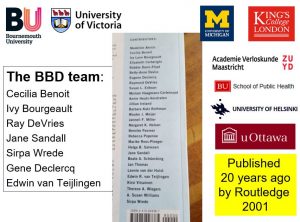
The following sessions, to which CMMPH academic have contributed, are ones to look forward to over the next month:
- Uniting the voice of midwifery education in the United Kingdom: the evolution and impact of the role of the Lead Midwife for Education (S. Way & N. Clark)
- Students’ experience of “hands off/hands on” support for breastfeeding in clinical practice (A. Taylor, G. Bennetts & C. Angell)
- Changing the narrative around childbirth: whose responsibility is it? (V. Hundley, A. Luce, E. van Teijlingen & S. Edlund)
- The social/medical of maternity care AND you (E. van Teijlingen)
- Developing an evidence-based toolkit to support practice assessment in midwifery (M. Fisher, H. Bower, S. Chenery Morris, F. Galloway, J. Jackson & S. Way)
- Are student midwives equipped to support normal birth? (J. Wood & J. Fry)
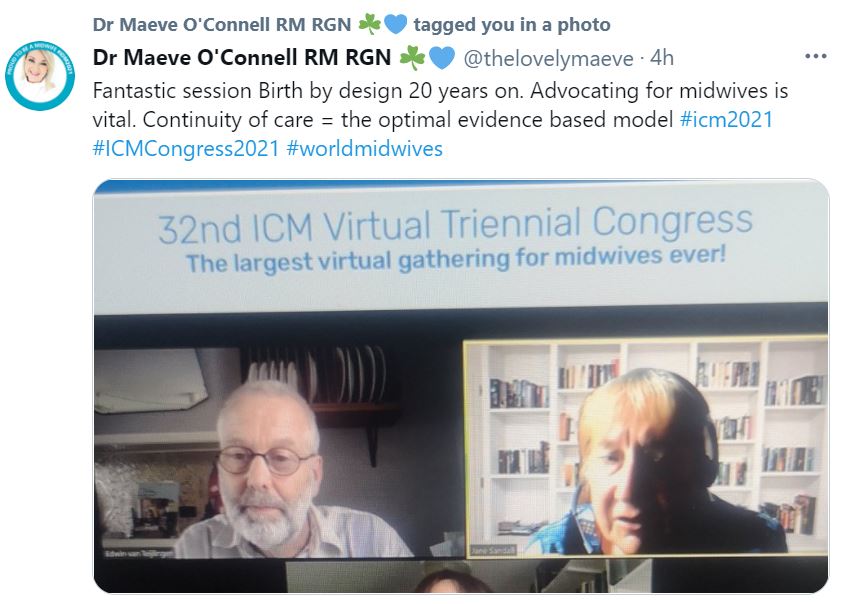
Qualitative methods training in Nepal
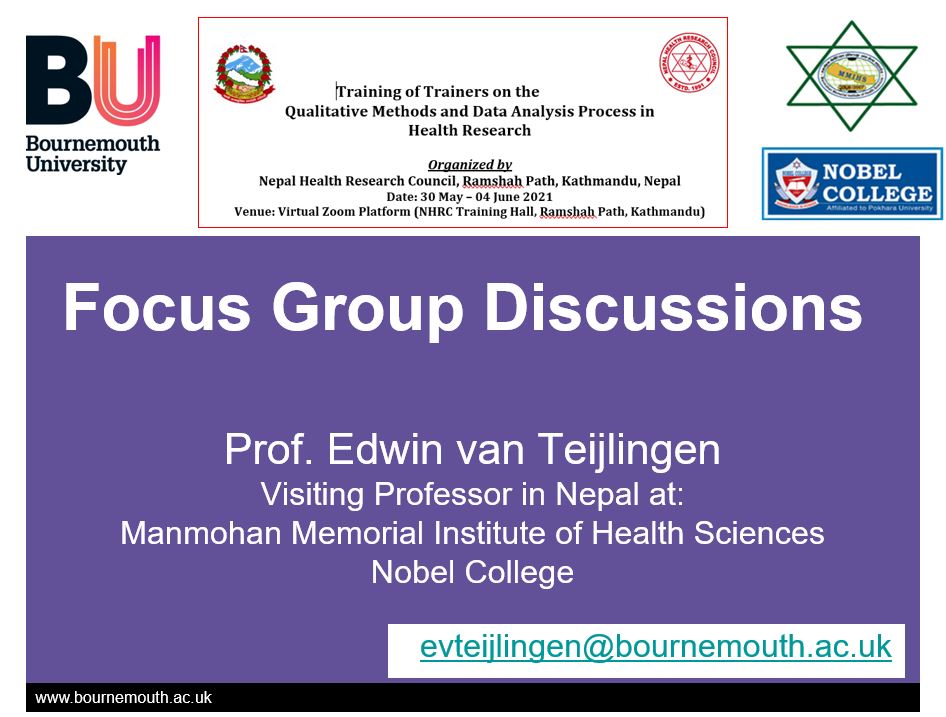
The national health ethics organisation in Nepal, the Nepal Health Research Council (NHRC), invited Prof. Edwin van Teijlingen to be part of its week long training programme next week. Edwin will be running a session on Focus Groups as qualitative on Bank Holiday Monday (31 May) and a session on Publishing Qualitative Research on Friday 4th June. As part of BU’s International Partnerships our staff help build research capacity in a number of low- and middle-income countries, such as Nepal.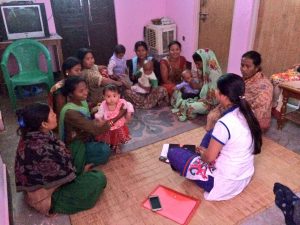
The invitation came through Prof Madhusudan Subedi, one of his Nepali collaborators on a research project on ‘The impact of federalisation on Nepal’s health system: a longitudinal analysis’. The project, funded under the DFID/ESRC/MRC/Wellcome Health Systems Research Initiative, examines the consequences for the health system of Nepal’s move to a federal government structure. The PIs for the project, Dr. Simon Rushton and Dr. Julie Balan , are based at the University of Sheffield, further collaborators include: Prof. Padam Simkhada (BU Visiting Faculty) who is based at the University of Huddersfield, Dr. Pratik Adhikary (BU Visiting Faculty & BU PhD graduate) who is based at PHASE Nepal and Prof. Sujan Marahatta, who is based at Manmohan Memorial Institute of Health Sciences in Kathmandu (MMIHS). BU has a further collaboration with MMIHS as we currently have an Erasmus+ student & staff exchange.
New international midwifery paper
 Today the editor of the European Journal of Midwifery emailed to announce the acceptance of the paper ‘Slovenian midwifery professionalisation: Perception of midwives and related health professions’ [1]. The first author from Slovenia, Dr. Polona Mivšek, has a long working relationship with BU’s Prof. Vanora Hundley (Professor of Midwifery) in the Centre for Midwifery, Maternal & Perinatal Health (CMMPH). The paper is the result of an international collaboration between the University of Ljubljana and Bournemouth University as well as an interdisciplinary collaboration between midwifery and sociology.
Today the editor of the European Journal of Midwifery emailed to announce the acceptance of the paper ‘Slovenian midwifery professionalisation: Perception of midwives and related health professions’ [1]. The first author from Slovenia, Dr. Polona Mivšek, has a long working relationship with BU’s Prof. Vanora Hundley (Professor of Midwifery) in the Centre for Midwifery, Maternal & Perinatal Health (CMMPH). The paper is the result of an international collaboration between the University of Ljubljana and Bournemouth University as well as an interdisciplinary collaboration between midwifery and sociology. 
Reference:
- Mivšek, A.P., Hundley, V., van Teijlingen, E., Pahor, M., Hlebec, V. (2021) Slovenian midwifery professionalisation: Perception of midwives and related health professions, European Journal of Midwifery (forthcoming)
NIHR Supporting Social Care Research in South Central Workshop 26th May 2021
Developing a Strategy for Addressing NIHR Priorities
Our RDS colleagues at South Central are hosting a one-day workshop for those interested in social care research. If you are a social care researcher or practitioner, a user, commissioner or provider of social care services and have ideas about how to develop and support social care research in South Central, please join them for the day.
Your local branch of the NIHR RDS (Research Design Service) is based within the BU Clinical Research Unit (BUCRU)
We can help with your application. We advise on all aspects of developing an application and can review application drafts as well as put them to a mock funding panel (run by RDS South West) known as Project Review Committee, which is a fantastic opportunity for researchers to obtain a critical review of a proposed grant application before this is sent to a funding body.
Contact us as early as possible to benefit fully from the advice
Feel free to call us on 01202 961939 or send us an email.
BNAC Study Days 2021
 This coming Thursday and Friday BNAC (British Nepal Academic Council) will be organising its annual Study Days. This year these will be held largely online. Bournemouth University is well represented in several papers as well as running a workshop for Early Career Researchers. On Thursday there will be two presentations based on the MRC-funded study on the impact of the federalisation process on health policies in Nepal:
This coming Thursday and Friday BNAC (British Nepal Academic Council) will be organising its annual Study Days. This year these will be held largely online. Bournemouth University is well represented in several papers as well as running a workshop for Early Career Researchers. On Thursday there will be two presentations based on the MRC-funded study on the impact of the federalisation process on health policies in Nepal:
- The provincial health policies in Nepal: Opportunities and challenges for an effective implementation, Sharada P Wasti & Padam Simkhada, University of Huddersfield; Edwin van Teijlingen, Bournemouth University; Simon Rushton & Julie Balen, University of Sheffield
- Federalization and health system in Nepal: A systematic review of the literature, Pratik Adhikary, PHASE Nepal; Sujata Sapkota, Sujan Gautam & Sujan Marahatta (Manmohan Memorial Institute of Health Sciences); Sarita Panday, Andrew Lee, Julie Balen & Simon Rushton, (University of Sheffield); Edwin van Teijlingen, Bournemouth University ; Padam Simkhada & Sharada P Wasti (University of Huddersfield); Madhusudan Subedi (Patan Academy of Health Sciences).

On Friday there will be four presentation with links to Bournemouth University:
- Are GBV response and rehabilitation services provided through OneStop Crisis Management Centers in Nepal inclusive of needs of women and girls with disability? Sapana Basnet Bista, Liverpool John Moores University; Padam Simkhada, University of Huddersfield; Edwin van Teijlingen, Bournemouth University, Shaurabh Sharma, Humanity & Inclusion
- Impacts of men’s migration on non-migrating spouse’s health and the implications for Nepal: A systematic literature review, Shraddha Manandhar, Philip Brown & Padam Simkhada, University of Huddersfield; Edwin van Teijlingen, Bournemouth University
- Maternal and neonatal health services in Jumla, Nepal: A health facility survey, Pasang D Tamang, Padam Simkhada & Paul Bissel, University of Huddersfield; Edwin van Teijlingen, University of Bournemouth and Rose Khatri, Liverpool John Moores University
- Knowledge, attitudes, and practices amongst the literate cohorts of Nepal about COVID-19, Mohan Kumar Sharma, Shanti Prasad Khanal, and Ramesh Adhikari, Tribhuvan University; Jib Acharya, ANC, Premium Services Ltd./Bournemouth University PhD Graduate
At Thursday lunchtime there will be a mentoring session for Early Career Researchers which will be coordinated by Premila van Ommen from the University of the Arts, London, and facilitated by Edwin van Teijlingen, University of Bournemouth.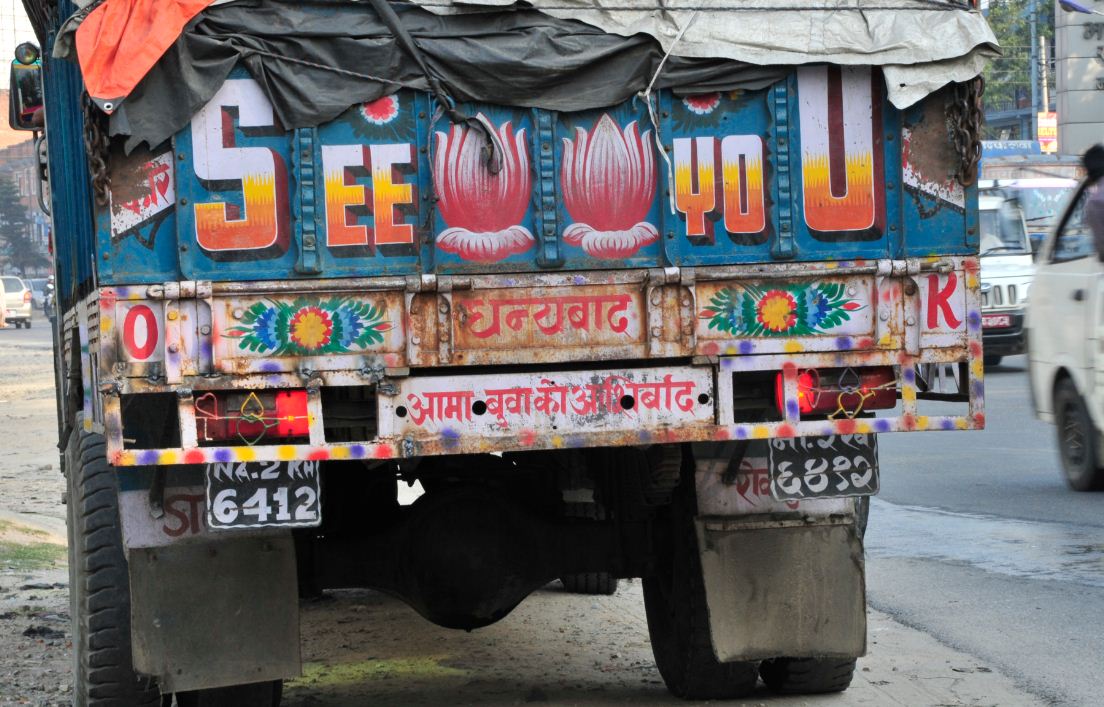
Congratulations to PhD student Raksha Thapa
This week BU PhD student Raksha Thapa heard from the editor of the Asia Pacific Journal of Public Health that her manuscript “Caste Exclusion and Health Discrimination in South Asia: A Systematic Review” has been accepted for publication [1]. Raksha is supervised in the Faculty of Health & Social Sciences by Dr. Pramod Regmi, Dr. Vanessa Heaslip and Prof. Edwin van Teijlingen. The paper is a systematic review and the protocol for it was published in PROSPERO early on at the start of her PhD studies [2].
References
- Thapa, R., van Teijlingen, E., Regmi, P., Heaslip, V. (2021) Caste Exclusion and Health Discrimination in South Asia: A Systematic Review, Asia Pacific Journal of Public Health (accepted).
- Thapa, R., van Teijlingen, E., Regmi, P., Heaslip, V. (2018) Caste exclusion and health discrimination. Prospero CRD42018110431crd.york.ac.uk/PROSPERO/display_record.php?ID=CRD42018110431
Happy New Year 2078 (in Nepal)
Bournemouth University wishes all its Nepali students, staff and collaborators in both the UK and in Nepal a Healthy and Happy New Year 2078 today.
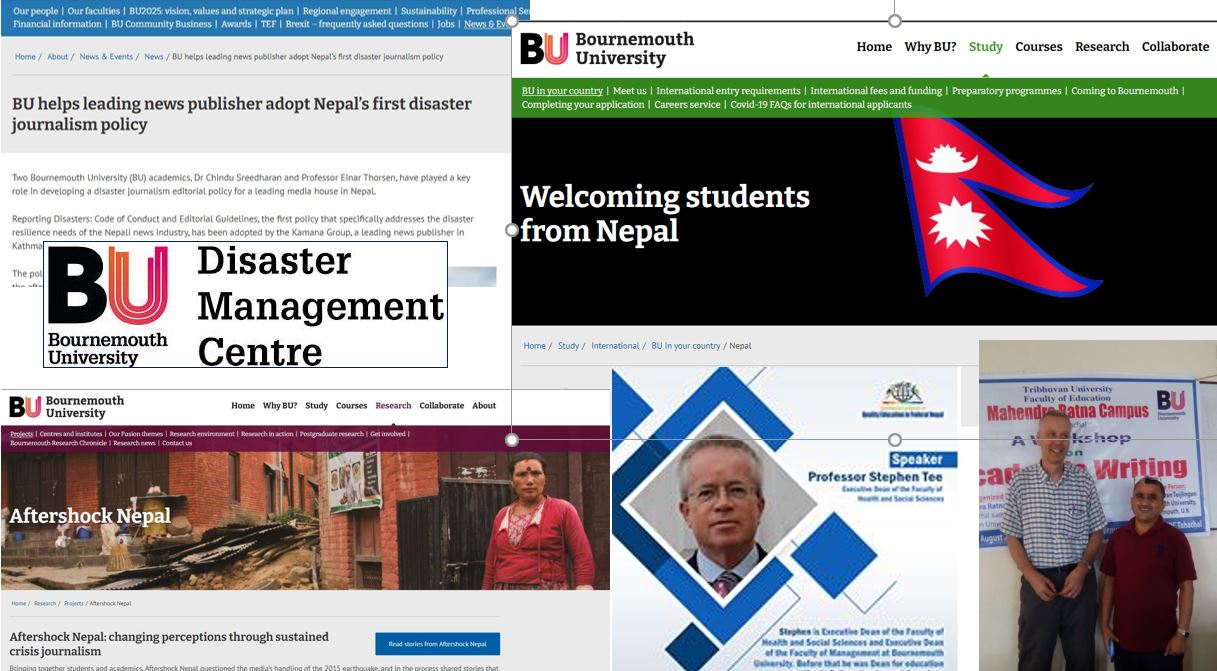

‘Doing Diversity Better: Interrogating ethnic and gender equality among BAME academics in HE’ April 22 14.00-16.00
 The Women’s Academic Network (WAN) at BU are delighted to host this powerful and timely public engagement, open-to-all, Q&A Panel Discussion on one of the most important and urgent issues facing Higher Education (HE) in the UK today.
The Women’s Academic Network (WAN) at BU are delighted to host this powerful and timely public engagement, open-to-all, Q&A Panel Discussion on one of the most important and urgent issues facing Higher Education (HE) in the UK today.
The Vice Chancellor, Professor John Vinney, will formally open the event which brings together four hugely eminent women academics of-colour, as well as a representative from the Bournemouth University Student Union (SUBU), who are all working within the broad areas of racialisation/ethnicisation and social inequalities. Each panellist will bring their own particular research expertise together with intellectual and experiential understandings to a grounded, candid and in-depth discussion of diversity in contemporary HE.
For more details and registration: https://www.eventbrite.co.uk/e/womens-academic-network-bournemouth-university-doing-diversity-better-tickets-146743055429
The panel context
UK HE is characterised by a homogeneity that fails to reflect social diversity, particularly in terms of ethnicity, gender and social class. These issues need to be located within a complex terrain of interwoven, intersectional experiences. The handy portmanteau term: ‘BAME’ (Black, Asian and Minority Ethnic) can also unhelpfully work to subsume entire groups who are otherwise subject to different levels of discrimination that may thereby remain less visible and therefore neglected. For example, a UCU 2019 report recorded that of a total number of professors in the UK, those self-identifying as ‘Black’ numbered just 85 individuals, and of these a mere 25 were women (Rollock 2019). While recent HESA (2020) data confirms that less than 1% of UK professors self-identify as Black. Unsurprisingly, Mizra (2019, p. 39) refers with horror to the overwhelming ‘hideous’ whiteness of academia. This alarming lack of representation among minority ethnic groups in HE not only exemplifies a dereliction of social justice but is demonstrably counterproductive to the academy across every area of scholarly endeavour, including inclusive pedagogy. The Race Equality Charter under AdvanceHE offers a valuable tool towards remedial action, but without direct debate, will towards and strategies for root-and-branch sector change, such charters are unlikely to create the necessary traction.
Our Panellists:
Professor Kalwant Bhopal is Professor of Education and Social Justice Professor of Education and Social Justice Director of the Centre for Research on Race and Education, University of Birmingham
Professor Ann Phoenix is Professor of Psychosocial Studies, at the Thomas Coram Research Unit, UCL Institute of Education
Dr Samantha Iwowo is the Programme Leader of MA Directing, Film and TV at BU.
Professor Gargi Bhattacharyya is Professor of Sociology at the Centre for Migration, Refugees and Belonging, University of East London
Ms Chiko Bwalya is the Education Vice President of SUBU.
We in WAN look forward to welcoming you.
Colleagues – please share among your networks. Students welcome
FHSS team wins British Academy award
 The British Academy informed us yesterday that we have been successful in our application to the Writing Workshops 2021. The project builds research capacity of early career researchers researching gender in higher education institutions in Nepal. The grant will provide training in academic writing and publishing to help improve Nepali staff’s chances of getting published in international journals in English. The workshops will be co-delivered by a team of UK-based (Dr. Shovita Dhakal Adhikari, Dr. Pramod Regmi and Prof. Edwin van Teijlingen) and Dr. Rashmee Rajkarnikar from Nepal’s oldest university, Tribhuvan University, supported by Nepali scholars/editors from Social Science Baha (SSB).
The British Academy informed us yesterday that we have been successful in our application to the Writing Workshops 2021. The project builds research capacity of early career researchers researching gender in higher education institutions in Nepal. The grant will provide training in academic writing and publishing to help improve Nepali staff’s chances of getting published in international journals in English. The workshops will be co-delivered by a team of UK-based (Dr. Shovita Dhakal Adhikari, Dr. Pramod Regmi and Prof. Edwin van Teijlingen) and Dr. Rashmee Rajkarnikar from Nepal’s oldest university, Tribhuvan University, supported by Nepali scholars/editors from Social Science Baha (SSB).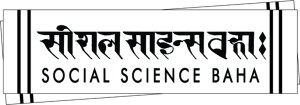
We have planned three stages: 1) virtual mini workshops, guided discussion/input on academic writing, publishing, journal submission, and review processes ; 2) online workshops where participants present their draft papers/work and receive feedback from peers, mentors, invited speakers/editors and opportunities networking/collaborations (for co-authorship, peer review and peer support); and 3) monthly tutorials (webinars) later in 2021 to provide mentorship and peer support to participants.
This application is third time lucky as two previous applications to The British Academic for Writing Work had not been successful. Over the years the team has build up capacity in academic writing and publishing in Nepal ad hoc. This grant will allow us to offer a more systematic approach to academic writing capacity building in Nepal. It is building on a growing number of paper published by FHSS staff on various aspects of academic writing and publishing. [1-14]
References:
- Adhikari, S. D., van Teijlingen, E. R., Regmi, P. R., Mahato, P., Simkhada, B., & Simkhada, P. P. (2020). The Presentation of Academic Self in The Digital Age: The Role of Electronic Databases. International J Soc Sci Management, 7(1), 38-41. https://doi.org/10.3126/ijssm.v7i1.27405
- van Teijlingen, E, Hundley, V. (2002) Getting your paper to the right journal: a case study of an academic paper, J Advanced Nurs 37(6): 506-11.
- Pitchforth, E, Porter M, Teijlingen van E, Keenan Forrest, K. (2005) Writing up & presenting qualitative research in family planning & reproductive health care, J Fam Plann Reprod Health Care 31(2): 132-135.
- van Teijlingen, E, Simkhada, PP, Rizyal A (2012) Submitting a paper to an academic peer-reviewed journal, where to start? (Guest Editorial) Health Renaissance 10(1): 1-4.
- van Teijlingen, E, Simkhada. PP, Simkhada, B, Ireland J. (2012) The long & winding road to publication, Nepal J Epidemiol 2(4): 213-215 http://nepjol.info/index.php/NJE/article/view/7093/6388
- Hundley, V, van Teijlingen, E, Simkhada, P (2013) Academic authorship: who, why and in what order? Health Renaissance 11(2):98-101 www.healthrenaissance.org.np/uploads/Download/vol-11-2/Page_99_101_Editorial.pdf
- Simkhada, P., van Teijlingen E., Hundley, V., Simkhada, BD. (2013) Writing an Abstract for a Scientific Conference, Kathmandu Univ Med J 11(3): 262-65. http://www.kumj.com.np/issue/43/262-265.pdf
- Simkhada P, van Teijlingen E, Hundley V. (2013) Writing an academic paper for publication, Health Renaissance 11(1):1-5. www.healthrenaissance.org.np/uploads/Pp_1_5_Guest_Editorial.pdf
- van Teijlingen, E., Ireland, J., Hundley, V., Simkhada, P., Sathian, B. (2014) Finding the right title for your article: Advice for academic authors, Nepal J Epidemiol 4(1): 344-347.
- van Teijlingen E., Hundley, V., Bick, D. (2014) Who should be an author on your academic paper? Midwifery 30: 385-386.
- Hall, J., Hundley, V., van Teijlingen, E. (2015) The journal editor: friend or foe? Women & Birth 28(2): e26-e29.
- Sathian, B., Simkhada, P., van Teijlingen, E., Roy, B, Banerjee, I. (2016) Grant writing for innovative medical research: Time to rethink. Med Sci 4(3):332-33.
- Pradhan, AK, van Teijlingen, ER. (2017) Predatory publishing: a great concern for authors, Med Sci 5(4): 43.
- van Teijlingen, E (2004), Why I can’t get any academic writing done, Medical Sociol News 30(3): 62-63. britsoc.co.uk/media/26334/MSN_Nov_2004.pd
The curious start of an academic collaboration
The curious start of an academic collaboration
 Two days ago a group of academic from Bournemouth University (BU) submitted a bid for a research grant to the NIHR (National Institute for Health Research) to help prevent the drowning of toddlers in Bangladesh. The proposed research is a collaboration with the RNLI (Royal National Lifeboat Institution), and an other UK university, the University of the West of England (UWE) and a research organisation called CIPRB (Centre for Injury Prevention and Research, Bangladesh). Nothing particularly out of the ordinary there. BU academics submit collaborative bid for research grants all the time, with colleagues at other universities, with large charities (like the RNLI), and with research institutes across the globe. What I find intriguing is the round-about way this particular collaboration came about within BU.
Two days ago a group of academic from Bournemouth University (BU) submitted a bid for a research grant to the NIHR (National Institute for Health Research) to help prevent the drowning of toddlers in Bangladesh. The proposed research is a collaboration with the RNLI (Royal National Lifeboat Institution), and an other UK university, the University of the West of England (UWE) and a research organisation called CIPRB (Centre for Injury Prevention and Research, Bangladesh). Nothing particularly out of the ordinary there. BU academics submit collaborative bid for research grants all the time, with colleagues at other universities, with large charities (like the RNLI), and with research institutes across the globe. What I find intriguing is the round-about way this particular collaboration came about within BU.
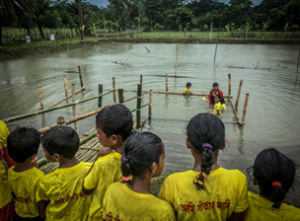 The NIHR called for research proposals in reply to its Global Health Transformation (RIGHT) programme. The RNLI approached CIPRB, an expert in accident prevention from UWE and BU experts in health economics and human-centred design to discuss putting in an intention to bid. The RNLI has a history of working with both CIPRB in Bangladesh on drowning prevention and with BU in various design project (including improved ball bearings for launching lifeboats). The team decided that it needed a sociologist to help study the social and cultural barriers to the introduction of interventions to prevent drowning in very young toddlers (12-14 months). My name was mentioned by our UWE colleague whom I know from her work in Nepal. For example, she and I had spoken at the same trauma conference in Nepal and the lead researcher on her most recent project is one of my former students.
The NIHR called for research proposals in reply to its Global Health Transformation (RIGHT) programme. The RNLI approached CIPRB, an expert in accident prevention from UWE and BU experts in health economics and human-centred design to discuss putting in an intention to bid. The RNLI has a history of working with both CIPRB in Bangladesh on drowning prevention and with BU in various design project (including improved ball bearings for launching lifeboats). The team decided that it needed a sociologist to help study the social and cultural barriers to the introduction of interventions to prevent drowning in very young toddlers (12-14 months). My name was mentioned by our UWE colleague whom I know from her work in Nepal. For example, she and I had spoken at the same trauma conference in Nepal and the lead researcher on her most recent project is one of my former students.

Thus, I was introduced to my BU colleagues in different departments (and faculties) by an outsider from a university miles away. I think it is also interesting that after twelve years at BU I am introduced to fellow researchers at the RNLI, especially since I only need to step out of my house and walk less than five minutes to see the RNLI headquarters in Poole.
Prof. Edwin van Teijlingen
CMMPH (Centre for Midwifery, Maternal & Perinatal Health)
Two new COVID-19 papers in FHSS
 Today FHSS Prof. Jonathan Parker published an article (online first) on structural discrimination and abuse associated with COVID-19 in care homes in The Journal of Adult Protection [1]. Whilst Dr. Preeti Mahato, Prof. Edwin van Teijlingen and FHSS Visiting Professor Padam Simkhada had a COVID-19 paper published in the Journal of Midwifery Association of Nepal (JMAN) in late-January 2021 [2], although an electronic copy only reached their email inbox today.
Today FHSS Prof. Jonathan Parker published an article (online first) on structural discrimination and abuse associated with COVID-19 in care homes in The Journal of Adult Protection [1]. Whilst Dr. Preeti Mahato, Prof. Edwin van Teijlingen and FHSS Visiting Professor Padam Simkhada had a COVID-19 paper published in the Journal of Midwifery Association of Nepal (JMAN) in late-January 2021 [2], although an electronic copy only reached their email inbox today.
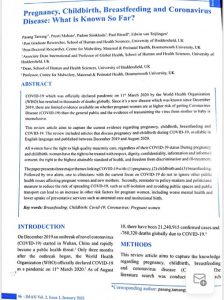
- Parker, J. (2021) Structural discrimination and abuse: COVID-19 and people in care homes in England and Wales, The Journal of Adult Protection, Online ahead-of-print. https://doi.org/10.1108/JAP-12-2020-0050
- Tamang, P., Mahato, P., Simkhada P., Bissell, P., van Teijlingen, E. (2021) Pregnancy, Childbirth, Breastfeeding and Coronavirus Disease: What is known so far? Journal of Midwifery Association of Nepal (JMAN) 2(1): 96-101.
Black Political Women and the 2020 US Presidential Election, IWD Webinar Speaker Event
The theme of this year’s Women’s International Day (IWD) is ‘Choose to Challenge’.
So, why is International Women’s Day important?
While IWD is about women it is not just for women. It focuses our collective minds on not only women’s achievements but, crucially, on what further big steps are needed to achieve genuine intersectional equality in social, civic and political spaces. While in some parts of the world women activists are subject to terrible oppression simply for championing the right to drive a car, elsewhere we have seen how women-of-colour are breaking down institutional barriers in the US Presidential elections.
If you would like to learn more about this extraordinary historical moment please join us at our International Webinar Speaker Event on March 8, 10.00-11.00 on ‘Black Political Women and the 2020 US Presidential Election: Lessons, Questions, & the Pursuit Lessons’
Abstract
Professor Nikol G. Alexander Floyd discusses the rise of Black political women in the US and the historic election of vice-president Kamala Harris, the first female and first Black and South Asian vice-president. She will also discuss how the policy needs of Black women and their communities might be addressed under the Biden administration and weighing competing definitions of progress in the current political moment.
 Speaker Information:
Speaker Information:
Nikol G. Alexander-Floyd is Associate Professor Political Science at Rutgers University-New Brunswick. A lawyer and political scientist, she is the co-founder of the Association for the Study of Black Women in Politics. Author of Gender, Race, and Nationalism in Contemporary Black Politics (Palgrave Macmillan 2007) and of the forthcoming Re-Imagining Black Women: A Critique of Post-Feminist and Post-Racial Melodrama in Culture and Politics (forthcoming NYU Press, April 2020) (https://www.amazon.com/Re-Imagining-Black-Women-Post-Feminist-Post-Racial/dp/1479850896/ref=sr_1_1?dchild=1&keywords=nikol+alexander-floyd&qid=1605716932&sr=8-1). Her articles have appeared in leading journals such as Feminist Formations; Frontiers: A Journal of Women’s Studies; The National Political Science Review; Politics & Gender; and Signs, and she is a past program co-chair of the Annual Meeting of the National Women’s Studies Association.
Chair: Professor Candida Yates, FMC
Event Organiser: Professor Sara Ashencaen Crabtree, Women’s Academic Network; FHSS
For more details about this Women’s Academic Network IWD event and registration go to Eventbrite at https://bit.ly/3jIKdUJ
Chapter published today: ‘Birth systems across the world’
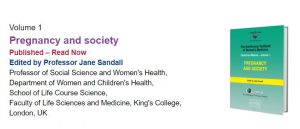 Today our chapter: Birth Systems across the World: Variations in maternity policy and services across countries was published in the renowned series of books: FIGO Continuous Textbook of Women’s Medicine [1]. This chapter was co-authored by Prof. Edwin van Teijlingen in the Centre for Midwifery, Maternal & Perinatal Health (CMMPH) with Prof. Sirpa Wrede and Doctoral Researcher from the University of Helsinki (Finland) and Dr. from the European University at St. Petersburg (Russia). The chapter includes a set of recommendations for future practice.
Today our chapter: Birth Systems across the World: Variations in maternity policy and services across countries was published in the renowned series of books: FIGO Continuous Textbook of Women’s Medicine [1]. This chapter was co-authored by Prof. Edwin van Teijlingen in the Centre for Midwifery, Maternal & Perinatal Health (CMMPH) with Prof. Sirpa Wrede and Doctoral Researcher from the University of Helsinki (Finland) and Dr. from the European University at St. Petersburg (Russia). The chapter includes a set of recommendations for future practice.
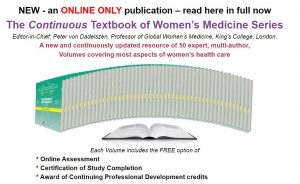 Volume 1 is edited by Prof. Jane Sandall from King’s College London. Earlier this year Prof. Sandall was appointed as the first-ever head of midwifery research for England and one of her key focuses will be around ending racial health inequalities in maternity care.
Volume 1 is edited by Prof. Jane Sandall from King’s College London. Earlier this year Prof. Sandall was appointed as the first-ever head of midwifery research for England and one of her key focuses will be around ending racial health inequalities in maternity care.
Everything published on The Global Library of Women’s Medicine is available to everyone everywhere for free and there is no requirement to register in order to view it.
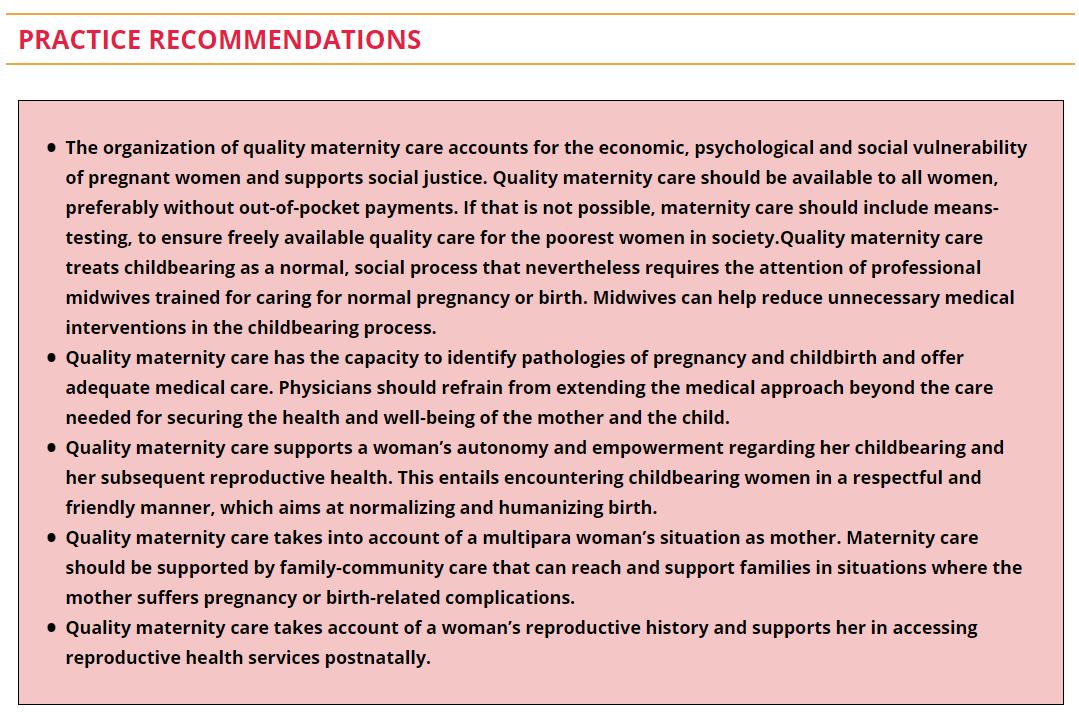
Reference:
- Wrede S, Novkunskaya A, Sarlio-Nieminen, J, van Teijlingen, E. (2021) Birth Systems across the World: Variations in maternity policy and services across countries, Glob. Libr. Women’s Med., ISSN: 1756-2228; DOI 10.3843/GLOWM.415183
Congratulations to Prof. Jonathan Parker
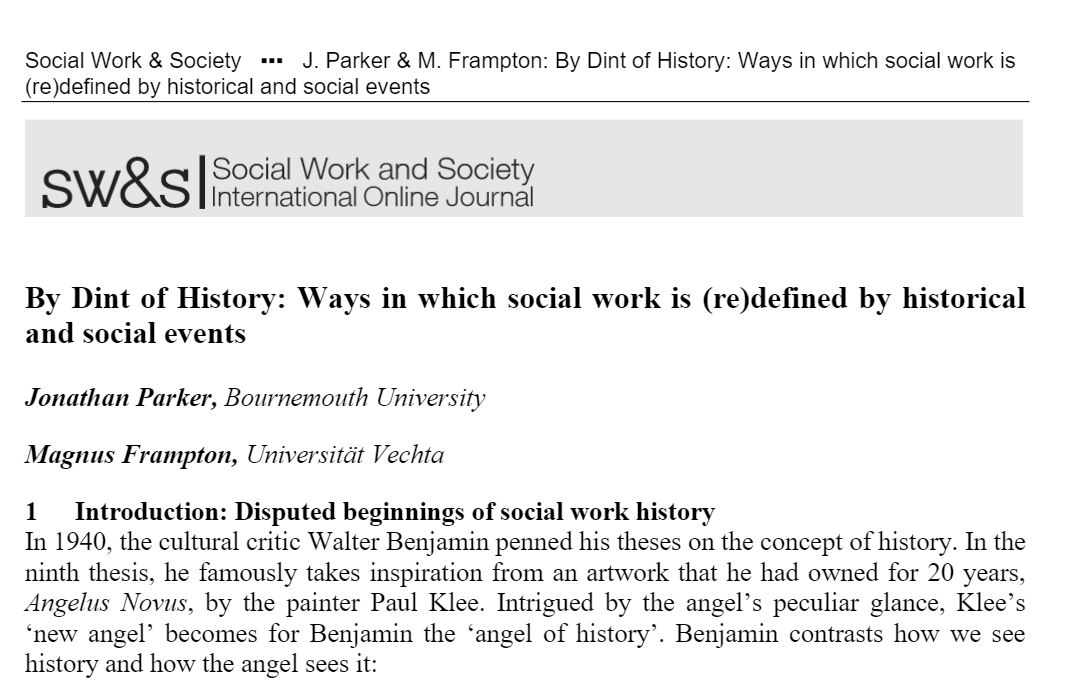 Congratulations to Professor Jonathan Parker on his latest publication ‘By Dint of History: Ways in which social work is (re)defined by historical and social events‘. This interesting paper is co-authored with Magnus Frampton from the Universität Vechta in Germany and published in the international journal Social Work & Society.
Congratulations to Professor Jonathan Parker on his latest publication ‘By Dint of History: Ways in which social work is (re)defined by historical and social events‘. This interesting paper is co-authored with Magnus Frampton from the Universität Vechta in Germany and published in the international journal Social Work & Society.
Reference:
- Parker, J., Frampton, M. (2020) By Dint of History: Ways in which social work is (re)defined by historical and social events, Social Work & Society, Volume 18, Issue 3: 1-17.
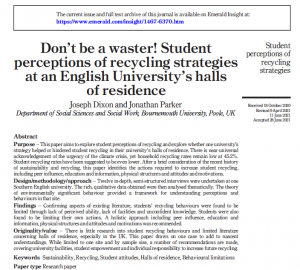

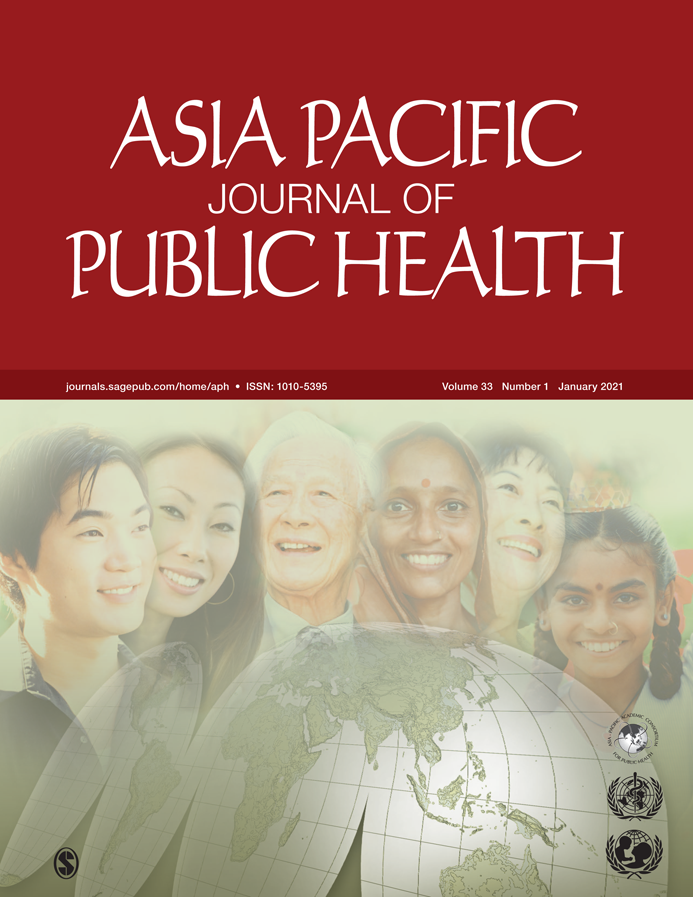











 REF Code of Practice consultation is open!
REF Code of Practice consultation is open! BU Leads AI-Driven Work Package in EU Horizon SUSHEAS Project
BU Leads AI-Driven Work Package in EU Horizon SUSHEAS Project Evidence Synthesis Centre open at Kathmandu University
Evidence Synthesis Centre open at Kathmandu University Expand Your Impact: Collaboration and Networking Workshops for Researchers
Expand Your Impact: Collaboration and Networking Workshops for Researchers ECR Funding Open Call: Research Culture & Community Grant – Apply now
ECR Funding Open Call: Research Culture & Community Grant – Apply now ECR Funding Open Call: Research Culture & Community Grant – Application Deadline Friday 12 December
ECR Funding Open Call: Research Culture & Community Grant – Application Deadline Friday 12 December MSCA Postdoctoral Fellowships 2025 Call
MSCA Postdoctoral Fellowships 2025 Call ERC Advanced Grant 2025 Webinar
ERC Advanced Grant 2025 Webinar Update on UKRO services
Update on UKRO services European research project exploring use of ‘virtual twins’ to better manage metabolic associated fatty liver disease
European research project exploring use of ‘virtual twins’ to better manage metabolic associated fatty liver disease